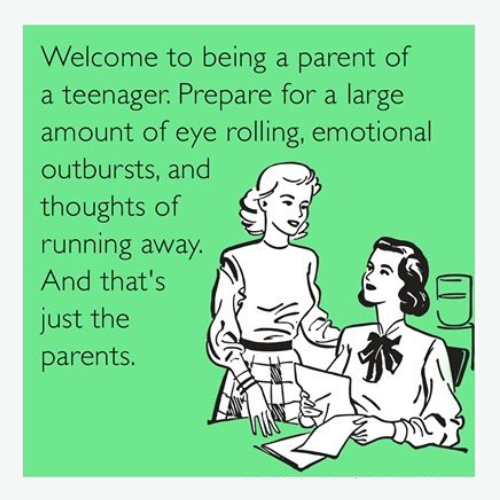
Navigating the teenage years can be a challenging experience for both parents and teens alike. In the UK, where cultural influences, education systems, and societal expectations shape young people’s lives, understanding and managing teenage behaviour requires patience, empathy, and practical strategies. This article explores common teenage behaviours, issues they face and offers tips for parents and guardians, and provides useful UK-specific resources to support families through this dynamic phase.

Adolescence is a time of significant physical, emotional, and psychological change. Teenagers undergo rapid emotional and physical changes, often leading to mood swings, defiance, or withdrawal. In the UK they face pressures from school (like GCSEs and A-Levels), social media, and peer relationships, which can lead to mood swings, rebellion, or withdrawal. According to the NHS, these behaviours are often a normal part of brain development, as the prefrontal cortex—responsible for decision-making and impulse control—matures. We all recall puberty and how tricky that time of our lives can be. Hormones rage and could affect our judgement, the same is true for teens of every generation!
However, some behaviours, such as excessive risk-taking, aggression, or signs of mental health struggles, may need closer attention. Recognising the difference between typical teenage angst and something more serious is the first step to providing the right support.
Building trust and open communication is key to managing teenage behaviour. Here’s how to foster it:
Rebellion is a classic teenage trait, often seen in the UK through skipping school, experimenting with alcohol, drugs, or challenging authority. The UK government’s advice on parenting teens suggests focusing on consistency rather than confrontation:
Channel teenage energy into constructive outlets:

Mental health challenges among UK teens have risen, with a 2023 NHS survey showing 1 in 5 young people aged 8-16 experiencing probable mental health issues. “There is, as yet, no scientific consensus on the impact of screen-based lifestyles on the mental health of young people” Frith E (2017). Signs like persistent sadness, anxiety, or changes in eating and sleeping habits warrant attention.
If behaviours escalate—such as substance abuse, self-harm, or violence—it’s time to act. The NHS provides CAMHS (Child and Adolescent Mental Health Services) across the UK, offering free support for under-18s. Contact your GP for a referral or explore private options via the British Association for Counselling and Psychotherapy (BACP). For urgent needs, call NHS 111 or visit A&E. Charities like Place2Be also provide school-based counselling.
(A brief introduction to what is going on physically, emotionally, socially and intellectually)
Puberty takes place over several years. During adolescence, males and females will experience a number of physical and growth changes. It is a period of rapid change and growth and is experienced by both females and males. Puberty is a development stage that prepares the body for sexual reproduction. It is triggered by the action of hormones that control sexual development. Both boys and girls may experience a ‘growth spurt’ when they grow taller at a faster rate than before. Sex hormones are responsible for the changes that occur in puberty. The pituitary gland controls the release of sex hormones in both females and males. The release of sex hormones controls the onset and rate of puberty, the physical changes such as pubic and axillary hair growth and egg and sperm production. It can prove to be a difficult time emotionally for young people as levels of hormones going up or down often cause mood swings.
Puberty in girls often starts between the ages of 11 and 13 although it may begin earlier. The main female hormones are oestrogen and progesterone. The ovaries start to produce oestrogen and progesterone which are responsible for changes including ovulation and menstruation. The first period is a significant, notable change for young females as it indicates the onset of fertility.
Boys generally start puberty later, often between 13 and 15 years of age. The main male hormone is testosterone. The testes start to produce testosterone which stimulates sperm production, indicating the onset of fertility. Testosterone is also responsible for the development of secondary sexual characteristics such as a deeper pitch and tone of the voice.
Identity. Children who have high self-esteem have an easier time in relationships, resisting peer pressure, making friends and handling conflicts. During adolescence, this sense of self continues to develop. An adolescent needs to develop a secure self-concept. A person needs a clear understanding of identity in order to feel secure when working with other people or in order to make a loving attachment. This may be a stressful time as self-esteem may depend on developing identity. John Bowlby (1907–1990) first proposed the theory (theory of attachment) that highlights the importance of a child having a significant adult (a person who is important to the child) with whom to form a close bond. This enables them to form more secure attachments and relationships as they grow and face life challenges. Fitting in with peer groups and gaining acceptance is very important. This is a period when young people can learn from their own mistakes and take responsibility for their own actions.
Self-esteem can become fragile and may change from day to day. Many teenagers become overly concerned about their physical appearance and how they are viewed and accepted by their peers. Body image is an essential part of a young person’s self-esteem. Young people who have a poor body image, who think they are fat, not pretty enough or not muscular enough, can experience low self-esteem. There has been research into low self-esteem in young people and the problems which are associated with it. For example poor school achievement, behaviour problems, experiencing bullying, teenage pregnancy, smoking and using alcohol and drugs. Other factors include refusing to go to school, depression and thoughts of suicide

During adolescence, young people become more independent, socialising outside the family and gaining more freedom. Peer groups play an important part in this stage of social development and begin to have a greater influence on values, views and opinions. Peer pressure can be challenging for teenagers and their families, for example encouraging risky behaviour. Adolescents copy the styles of dress, beliefs, cultural values and behaviours of their own network of friends. Peer influence can lead a young person to question choices and decisions that have been made on their behalf. Young people can learn from real-life experiences about the consequences of making good or poor choices.
Development of logical thought, problem solving and memory recall skills. The capacity for abstract thinking allows adolescents to reason. Young people can also think of possible outcomes of a scientific problem, not just the obvious ones. Abstract thinking enables individuals to think through complicated ideas in their heads without having to see the concrete image. Engaging them in deeper, meaningful conversations when they are keen on the topic, is a great way to communicate and help them develop their own critical thinking skills.
Supporting UK teens means blending empathy with firm guidance, tailored to their needs. It is about balance—understanding their need for independence while providing guidance and support. By staying informed, leveraging local resources, and maintaining a strong connection, parents can help their teens navigate this transformative stage with resilience and confidence. Whether tackling defiance or nurturing their mental health, these strategies and resources empower families to face challenges together. If in doubt, reach out—help is available across the UK to ensure no parent or teen feels alone.
© The Uncensored Patriots - 2025. All rights reserved. Web design and maintenance by Consiliuma. Articles by TUP Community Members.